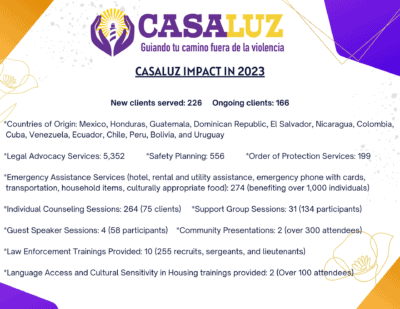Federal, State, and local government agencies have legal obligations to Limited English Proficient (LEP) individuals. Title VI of the Civil Rights Act of 1964 prohibits discrimination on the basis of race, color, or national origin under any program or activity receiving federal financial assistance. Title VI also protects individuals from retaliation, coercion, and intimidation for asserting Title VI rights.
All agencies and organizations receiving federal funding should provide language access to LEP individuals. Police and sheriff departments in particular could create a Language Access Plan to set the guidelines to take reasonable steps to provide meaningful access to programs and services to LEP individuals. Meaningful access refers to access that is not significantly restricted, delayed, or inferior as compared to services, programs, or activities provided to English-proficient individuals.
The most common resources for language access are utilizing a language line, hiring interpreters, or bilingual officers. Officers shouldn’t be reliant on children, family members, involved parties, or neighbors to provide interpretation in any case, but in many of the domestic violence cases we have in our office, children have been utilized as interpreters at the scene. Can you imagine a child who has already been a witness to violence also interpreting for the officers? This practice is cruel and re-traumatizing besides being a civil rights violation. Also, many of our clients’ experiences include officers telling victims that they need to find their own interpreters. Sadly, without the proper guidance, supervision, training, and accountability, the chances of officers using children and other unqualified interpreters are higher and it has become an ongoing practice.
As part of our commitment to be part of the solution and to continue moving Memphis/Shelby County forward and pushing for changes in the system, we applied a few years ago for a grant from the Department of Justice to provide specialized training. Since 2021, in partnership with Cannon Han, senior program associate at the Asian Pacific Institute on Gender-Based Violence, and Det. Shelli Sonnerberg Wardle from the Boise Police Department we have co-facilitated several trainings on Language Access, Title VI, Cultural Sensitivity, and Responding to Immigrant/Hispanic LEP victims to some local law enforcement agencies. We are supporting our local law enforcement agencies to be better equipped to serve all members of our communities.
The proper interpretation is vital for a victim to communicate not just at the scene but through the investigation and prosecution of the case, and how immigrants are assisted by police officers may determine their willingness to continue to cooperate with the process. Also, the assistance available to LEP people should include both oral and written language services. The DOJ leaves the determination of what documents need to be translated for the benefit of the LEP persons up to the police departments. Anyway, it would be ideal if besides translating vital written materials, the police departments also translated other important forms, urgent messages, public notifications, and crime prevention messages, and some cities even have 911 text services in other languages besides English.
Police departments should notify the community that interpretation/translation services are available to the public at no cost to the LEP individual. Also, if bilingual officers are going to be utilized as interpreters, it will be extremely important to set a qualified language assessment to determine their level of fluency in the other language (oral and written).
Grant funding is available for police agencies to provide language access services and departments are responsible for seeking those funds themselves. Police departments could use those funds to hire interpreters, which would be better than using bilingual officers. In immigrant communities, the fear of police is very common, and many immigrant victims we have worked with have mentioned to us that for them a bilingual officer is still a police officer even if they speak the same language. The mistrust and fear are still latent for many victims. The law enforcement agencies in Memphis and Shelby County are woefully behind in this matter, and they need to step up their game to be in compliance and provide quality services to all members of our communities, regardless of their English proficiency levels.


